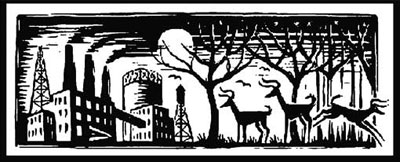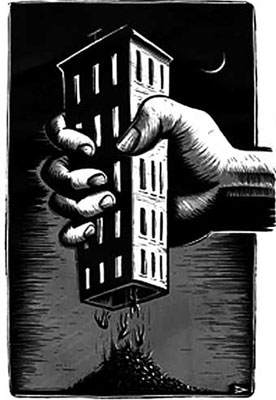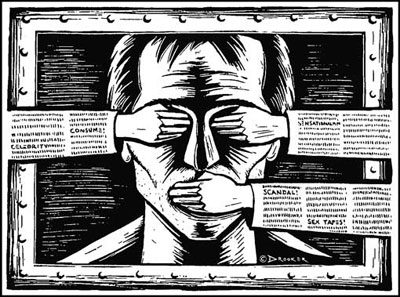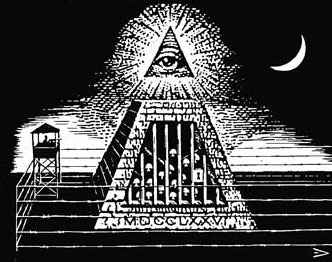
Andrea Staid: Before talking about the core of the book that" the cultures and powers," I wanted to say a few words about your interesting analysis of anthropological perspectives on politics, what do you mean exactly?
Stefano Boni: We're used to a setting of academic disciplines, to conceive of power as a field, a sphere, an area cut off from society. Since the seventies it was more and more clearly defined in a different and more useful perspective: power is not localized only in the state or in specific institutions because it is widespread in the social body, it is rather the ability to influence and direct the behavior of others . All the exercise though with very different intensities.
Power is therefore a dimension of every social relationship. Not only that, the overall result of the acts of power shapes the societies and cultures as we know them both in such practices and ideas are asserted and which are marginalized (the dynamic that I call 'cultural selection'), both with regard to the space left to the option not to follow the rules hegemonic (the dynamic that I call 'standardization'). Each form states that cultural and social history, as hegemonic as the resistance is the result of the minute acts of power that we experience in the field and we put in our daily lives.
A.S.: I believe that libertarian thought and anthropological theory and practice enjoy many similarities, in recent years in anthropology some things are changing, many scholars feel that libertarians have been close to anthropology in search of specific studies on possible existence of society without the state, without a domain, or for example a society without patriarchy, others have sought to apply the anthropological method to build a true ethnography of social movements.
With an inverse, many anthropologists have approached the libertarian ideas based on field research, through the study of "other" cultures, systems and ways of organizing social life and living space policy ... . what do you think?
S.B.: Anthropology and Anarchism feed on one another. On the one hand, anthropology documenting the contexts in which they are radically subverted the fees that today we are presented as normal and inevitable - the state's authority, the existence technologizing, the liability of citizenship, the realization in consumption. The experience of alienation provoked by the anthropological knowledge of cultural circuits offering truth apart from those in which one has grown up, opens up enormous possibilities for rethinking.
The study of social movements that unfold in the world, for example, provides important insights about the variety of forms, instruments, control and the possibilities and pitfalls of popular mobilizations. On the other hand, I would say that anarchy becomes a haven for those who politically attractive, de-constructed self-legitimation of who centralized power, believes in a world of equals, made consistent with the preservation of diversity and individual autonomy.

 So horizontal line
So horizontal line
A.S.: In his latest book Gramsci is dead, Richard Day Canadian political philosopher and sociologist describes power as a network and a network according to him should also be a multi-faceted resistance to domination. The struggles of radical post-modern show how the idea of a cosmopolitan release under a single sign is a de facto totalitarian and modernist imagination.
In your new book is also about what you think of the hegemony thesis on Richard Day affinity against hegemonic policies within the movements.
 S.B.: The hegemony provides a concentration of power in those who lead and manage the dynamics of power. The Marxian paradigm involved the replacement of capitalist hegemony with that of the vanguard party. Finally it is clear that this understanding of politics is buried in the remnants of socialism (increasingly capitalist) and attachment to the chair of sinister figures (increasingly indistinguishable from the neo-liberal). The exhaustion of the Marxist perspective on the one hand made it vulnerable to the most vulnerable, the other opens the possibility of renewed fighting radicals. Notav to university students, some citizens' committees to immigrants spread direct action, after decades of ineffectiveness of the protest from below.
S.B.: The hegemony provides a concentration of power in those who lead and manage the dynamics of power. The Marxian paradigm involved the replacement of capitalist hegemony with that of the vanguard party. Finally it is clear that this understanding of politics is buried in the remnants of socialism (increasingly capitalist) and attachment to the chair of sinister figures (increasingly indistinguishable from the neo-liberal). The exhaustion of the Marxist perspective on the one hand made it vulnerable to the most vulnerable, the other opens the possibility of renewed fighting radicals. Notav to university students, some citizens' committees to immigrants spread direct action, after decades of ineffectiveness of the protest from below.
The challenge for all who are affected by a pervasive institutional power, business, crime is to pass from the imaginary construction of the spread of subversive areas increasingly significant practice of self-managed and diffuse power. The first step, but it is a difficult and crucial step, is to be able to (re) constituted as collective entities empowered and achieve concrete goals to defeat the two main obstacles to the direct exercise of power, individualism and the sense of existential helplessness.
I am convinced that the transition from solitude to society and distrust the effectiveness of creative struggles, it can generate, even in a relatively short time, prospects hours unimaginable. I believe, like Day, who must build communities organized in a horizontal line in the decision-making, open to hybridization of identity, eclectic in the way of struggle. In practice, affinity groups sufficiently stable to act effectively, is not sufficiently dynamic to lifeless.
A.S.: Very interesting part of the analysis of the domain node for thought essential to understanding the different aspects of power. Central is the relationship that individuals within a social body and entertain each other with things. From my point of view and their relations are such that sedimentation contributes to the creation of subjects and social structures and determine the way individuals and society assigns to reality....
S.B.: If power is conceived as a packaging capacity, is in the form of reports and is constitutive of subjectivity. Who manages the centers of power contemporary (media, state finance and businesses) apparently ensures equality through the institutions 'democratic', in fact, focuses the ability to influence and shape the tastes, beliefs, life and subjectivities increasingly seeks to broaden the spheres that are governed by inhibiting individual diversity.
Compared to today's concentration of power exponential think the transition from face to face communication, characterized by small groups where everyone talked and listened to the media, messages beamed at national, global, with no chance to reply.
Of enlargement of the spheres regulated by repressive mechanisms merchant, bureaucratic and legal, in the book there is an endless list of delusions promoted by the various regulatory institutions and thinkable only in the contemporary West. Are to be welcomed that the community over the last decade is gradually focusing on the hypocrisy of the democratic fiction. Outbreaks of immediate reassertion of power, not directed by avant-garde or political, are unfolding in the form of street protests decided on several areas of South America, and ultimately the Mediterranean. In Italy the disillusionment is spreading from the institutions and multiplying embryonic and minute elements in the form of local committees that in some cases are able to block the institutional decisions while it intensifies the anger of areas affected by the divestiture of social services, the criminalization and the arrogance business.

 Senza concentrazioni di potere
Senza concentrazioni di potere
A.S.: We can not deal with your conclusions, what do you mean to spread the power ... as I wrote in issue 358 of AI am convinced that, as Michel Foucault reminds us of the power not only occupies a privileged place, nor depends on a single subject identified once and for all. The state, laws, hegemonies and social effects are merely manifestations of an institutional relations and power strategies. The power, however, is anonymously spread everywhere, is omnipresent and everywhere, "not because it encompasses everything, but because it comes from everywhere".
The power coincides with the multiplicity of power relations, which in various ways are interwoven and contrasted. It 'a relationship between individuals and society is crossed by power relations: every social relationship is a relationship of power. So being able to something missing in many reports, both personal and political, theoretical and material we need to understand "only" how to distribute it to break down but that gaming is the domain where access to power is a monopoly of the company , ie under which an order of the social regulatory function.
 S.B.: I think there is a growing convergence not only in the anarchic environment, on a clear and simple program, summarized in concrete daily actions: desert, sabotage, kill, escape from the contexts in which power is concentrated and invasive, and build environments respectful of individual autonomy and ways in which everyone is able to exercise the same intensity as the one who suffers.
S.B.: I think there is a growing convergence not only in the anarchic environment, on a clear and simple program, summarized in concrete daily actions: desert, sabotage, kill, escape from the contexts in which power is concentrated and invasive, and build environments respectful of individual autonomy and ways in which everyone is able to exercise the same intensity as the one who suffers.
This project involves the spread of autonomy, or places, contexts, knowledge, groups relatively little influenced by the market, the state, the media. I believe that strengthening the autonomy requires a sharp critique technological apparatus that is served up as necessary, with the goal of eliminating the unnecessary and self-manage as much as possible, the devices that we now seem indispensable. I do not know if and when a company becomes established in a diffuse power, without concentration of power. If you do not know what will happen because it will take as the result of multiple subjectivity, which will make contributions certainly different and probably inconsistent, unpredictable now anyway.
What I know is that everyone can take an active role in shaping the context in which the / or surrounds, but now we are conditioned by agencies that have a right to an intensity far superior to that which we can generate. The current exclusion of people from the fields of collective decision-making skills in addition to alienate, allowed a voracious appetite that has proved very productive nefarious.
A.S.: I agree with you, although I'd like to understand how to do the famous I realize that there is a recipe for spreading the power to counter the domain.
Certainly plays a key from his daily life, to help overturn the hegemonic relations here and now in the process of cultural change towards a more free and egalitarian society.

